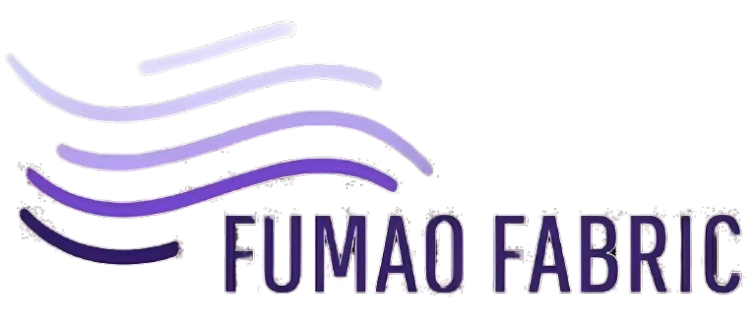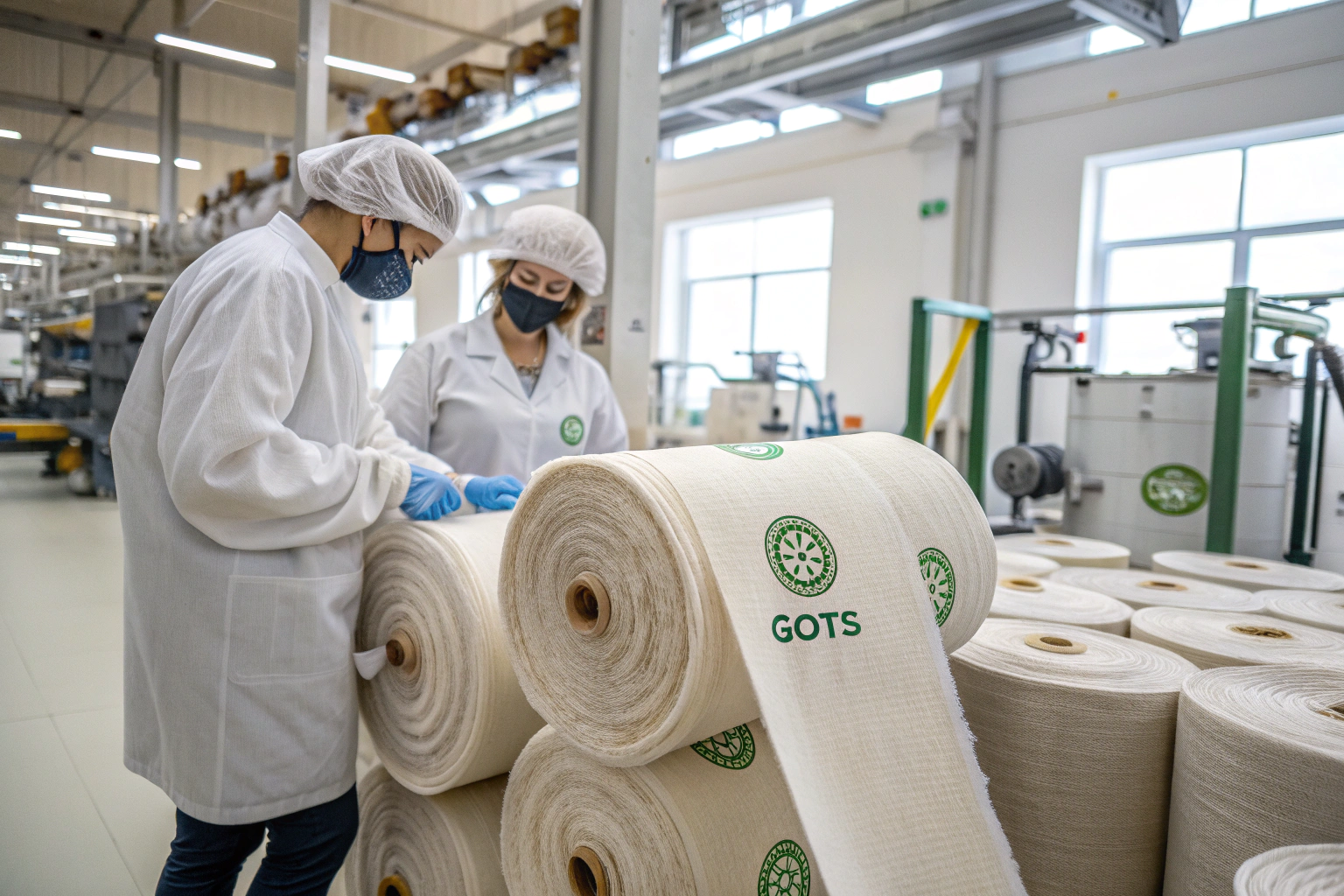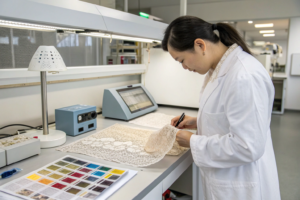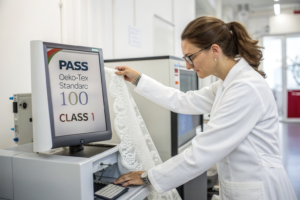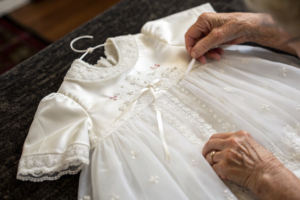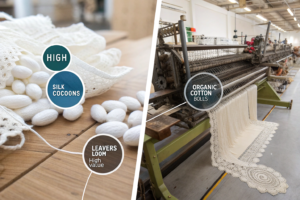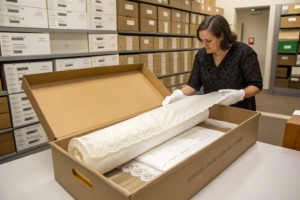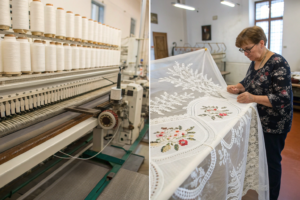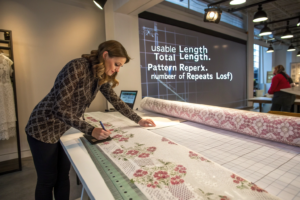Sourcing certified sustainable fabrics like GOTS-certified hemp-cotton blends can feel overwhelming if you’re navigating factories from across the globe. With so many greenwashing claims in today’s market, how can you be certain you're getting what you paid for—without compromising quality, lead time, or consistency?
To source GOTS-certified hemp-cotton blends successfully, buyers must identify reliable suppliers with certified production chains, understand testing requirements, and manage documentation across spinning, weaving, and dyeing processes. This ensures both compliance and consistent quality in eco-conscious sourcing.
If you're a U.S. importer, European designer, or Southeast Asian apparel brand, the path to sustainable fiber sourcing isn't just about buzzwords—it's about trust, traceability, and certification-backed results. In this guide, I’ll break down exactly how we help global partners source verified GOTS hemp-cotton blends that meet both performance and ethical benchmarks.
What Does GOTS Certification Mean for Hemp-Cotton Fabrics?
Understanding what the GOTS label stands for is critical when sourcing sustainable hemp-cotton blends. Without knowing the meaning and weight behind it, buyers may fall into the trap of greenwashing vendors.
GOTS (Global Organic Textile Standard) is the world’s leading certification for organic textiles. It covers the entire supply chain—from raw material harvesting through environmentally and socially responsible manufacturing—offering assurance of true sustainability.
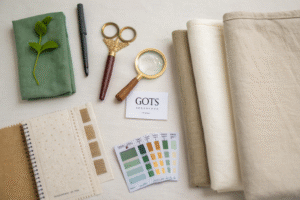
Why Is GOTS More Than Just Organic?
Unlike standard “organic” claims, GOTS requires:
- Certified organic raw material (minimum 70% organic fibers).
- No harmful chemicals during processing.
- Social compliance (fair wages, no child labor).
- Third-party audits and traceability.
For hemp-cotton blends, this means both the hemp fiber and cotton component must come from organic farms. Plus, all processing facilities—including spinning, weaving, dyeing, and finishing—must be GOTS-certified. That’s what makes the label more than a buzzword. It’s a contract.
Is Hemp Always GOTS-Eligible?
Not always. Hemp is naturally eco-friendly due to its low pesticide need, but unless grown and processed in an organic-certified system, it won’t pass GOTS. That’s why sourcing from fully GOTS-compliant supply chains is key. You can verify a fabric’s GOTS status via the GOTS Public Database.
Where Can I Find GOTS-Certified Hemp-Cotton Fabric Suppliers?
When it comes to sourcing, location matters. A vendor’s claim is only as strong as their compliance—and that compliance is only verifiable through certification traceability.
The most consistent sources for GOTS-certified hemp-cotton fabrics come from established textile clusters like Keqiao in China, Tiruppur in India, and Istanbul in Turkey. Among them, Keqiao stands out for scalability and integrated supply chains.
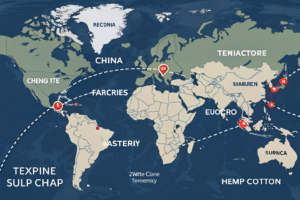
Why Is Keqiao a Leading Source?
Keqiao hosts 25% of global textile trade and over 80,000 manufacturing units. That means it’s equipped with:
- Vertically integrated supply chains (yarn to dyeing to finishing).
- CNAS-certified labs for testing shrinkage, colorfastness, etc.
- Export-readiness with built-in customs and warehousing hubs.
That’s why at Fumao Fabric, we maintain close partnerships with dyeing and spinning factories that pass GOTS audit checkpoints. We also provide QR code traceability that links every lot to its origin and test data.
Which Documents Should I Ask For?
Always request:
- GOTS Transaction Certificate (TC) for your specific batch.
- Test reports for pH, shrinkage, colorfastness (preferably SGS or ITS).
- Supply chain breakdown showing certified partners (spinners, dyers, finishers).
You can cross-reference the TC number directly on the GOTS website.
How Do I Verify the Authenticity of a GOTS Hemp-Cotton Supplier?
Not all GOTS claims are true. That’s why due diligence is essential. Too many buyers trust a logo in a catalog without checking certification details.
The best way to verify a GOTS supplier is to check their license number on the GOTS official website, inspect their documentation trail (TCs, audit reports), and request lab-tested samples before bulk orders.

What Questions Should I Ask Potential Suppliers?
Use this checklist:
| Question | Why It Matters |
|---|---|
| What’s your GOTS license number? | Cross-check for fraud. |
| Are your spinning/dyeing/finishing units GOTS-certified? | GOTS requires all to comply. |
| Can I get a TC for my order? | Mandatory for GOTS labeling. |
| Do you provide pre-shipment test results? | Ensures fabric performance. |
These questions help weed out companies that use uncertified sub-processors or outsource to non-compliant mills.
How Can Technology Help in Verification?
Platforms like Textile Exchange and Higg Index are also useful for assessing supplier environmental and social compliance. At Fumao, we also provide access to a digital tech pack library and online lab report dashboard, so clients like Ron from the U.S. can review all specs before committing to bulk.
What Is the MOQ, Lead Time, and Cost Structure for GOTS Hemp-Cotton?
Let’s get to what every buyer really wants to know: Can I afford this? How fast can I get it? And what’s the minimum quantity?
GOTS-certified hemp-cotton blends typically come with a slightly higher cost (10–25% more) and stricter MOQs, but the premium is justified by compliance, reliability, and global trust in the fabric.
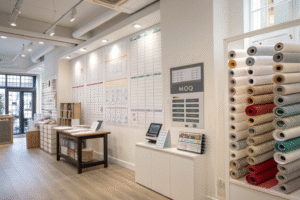
What Are Common MOQ & Lead Times?
| Order Type | MOQ | Lead Time |
|---|---|---|
| Ready-stock rolls | 300–500 meters | 3–7 days |
| Custom color | 800–1000 meters | 2–3 weeks |
| Custom composition or weave | 1200+ meters | 25–35 days |
We can expedite sampling in 48 hours and provide lab dips in 72 hours. Our speed has helped brands launching Kickstarter collections or flash drops stay agile.
How Is Pricing Structured?
GOTS-certified hemp-cotton blends range from $3.90 to $6.20 per meter, depending on:
- Hemp-to-cotton ratio (60/40 vs 30/70).
- Yarn count & weave (plain vs twill vs slub).
- Dyeing process (reactive vs pigment).
- Post-finishing (brushing, coating, anti-pilling).
We also offer volume-based discounts and DDP terms to U.S. ports, cutting out tariff uncertainties. Ron and his peers often benefit from our Alibaba Gold Supplier verification, ensuring safe payment terms and delivery protection.
Conclusion
Sourcing GOTS-certified hemp-cotton blends doesn’t need to be risky or complex. By understanding what GOTS actually requires, knowing which suppliers are truly certified, and evaluating lead times and MOQ smartly, your apparel business can grow sustainably while keeping quality in check.
At Fumao Fabric, we’ve built an integrated sourcing solution—from spinning to lab certification—that’s trusted by eco-conscious brands in over 100 countries. If you’re planning your next green collection, we’re here to co-create the textile foundation that aligns with your values and sales goals.
Want to explore hemp-cotton development for your next order? Reach out to our Business Director Elaine at elaine@fumaoclothing.com. We’ll help you build a sustainable line with trust, speed, and true GOTS credentials.
